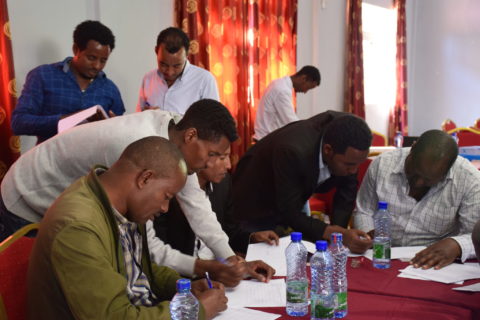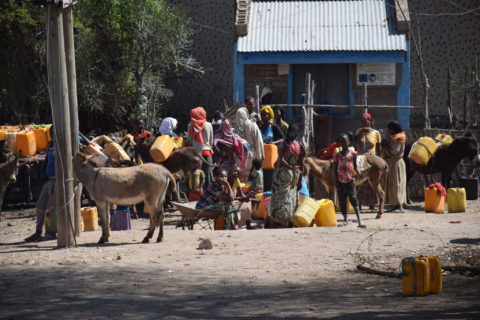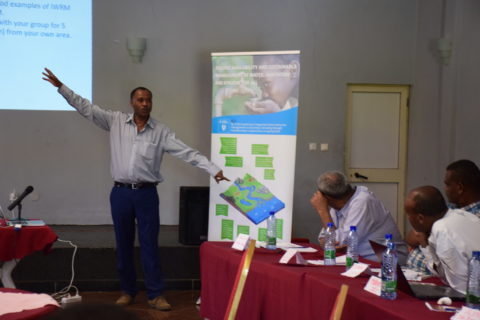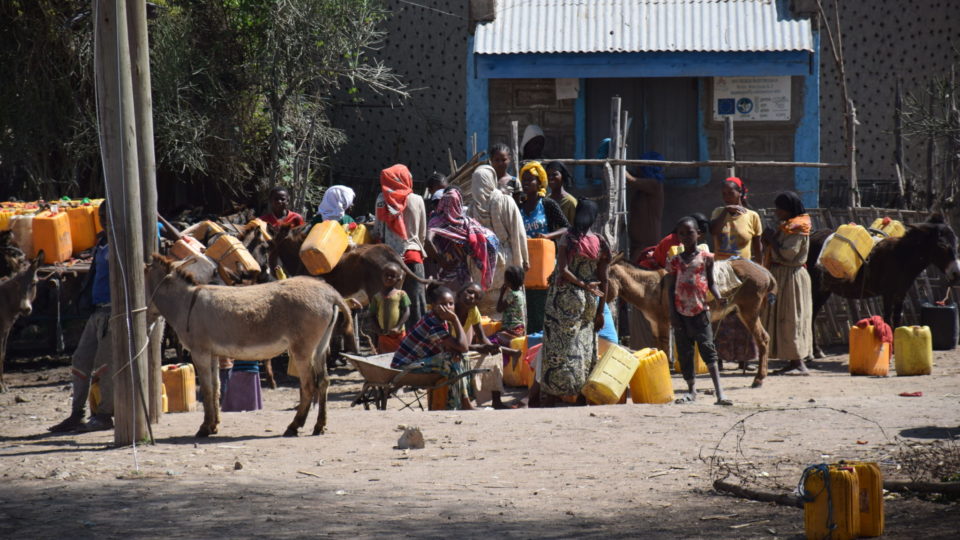The need for sustainable WASH services to include water security issues is becoming increasingly accepted. Sustainable Development Goal 6 acknowledges and promotes the use of integrated approaches to address sustainable WASH services delivery in an increasingly water insecure world. The Integrated approaches including water quality control, ecosystem management/restoration and IWRM are imperative for ensuring the sustainability of WASH as expressed in the SDG6 targets.
As such Wetlands International, RAIN and Ethiopia WASH Alliance brought together more than 34 participants from different partner organisations and stakeholders working in the WASH sector for a four-day Integrated Water Resource Management (IWRM) Training workshop in Haile Resort, Ziway, Ethiopia. The IWRM training aimed at promoting the coordinated development and management of water, land and related resources in order to maximise economic and social welfare in an equitable manner without compromising the sustainability of vital ecosystems.

The training workshop explored use of a participatory approach where the participants had the opportunity to interact with real life cases, field visits and situations to address issues related to sustainability and equitability of water resources, policies, balancing the demand, supply and quality of water, the socio-economic and environmental impacts, and meeting development priorities. Among the projects visited was the Guna Dole WASH project that was funded by the EU, implemented 4 years ago and supplies clean and safe drinking water to communities in over 20 Kebeles. According to the project team, the project has been a remarkable success recording many achievements and growing in capacity. However, the entire component of the WASH was not evenly achieved. Water scarcity being a key issue in Ethiopia, more focus went into the supply of clean and safe drinking water rather than sanitation and hygiene as had been defined in the initial project scope. The team also visited Lake Abijatta National Park and Soda Ash factory.

The workshop, which was held from 23rd – 27th April, 2018, was part of the inception phase for the Netherlands WASH SDG Programme which will be implemented in Ethiopia and 6 other countries. To contribute in realizing SDG6, WASH SDG Programme is a partnership programme that aims to contribute sustainably by improving access to and use of sanitation and improving hygiene behaviours for at least 2 million people, and access to and use of safe drinking water for at least 450,000 people in the coming five years. The WASH SDG programme is built on three core strategic objectives, namely: (1) increasing demand for improved WASH facilities and practices, (2) improving the quality of service provision and by (3) improving governance of the sector. WASH requires water abstraction from the hydrological cycle while climate change and growing competition are changing the availability of water in many areas in the world. Where WASH systems are not well managed, untreated human waste is often disposed of directly into water bodies, thereby degrading ambient water quality, and increasing the costs of providing clean drinking water later and elsewhere. Such adverse environmental impacts may also negatively affect the functioning of (especially) aquatic ecosystems such as wetlands and the potential to provide services and goods.

“Integrated Water Resource Management is a tool that can appropriately balance conflicting objectives; Economy efficiency; Social Equity and Environmental Sustainability” Leulseged Yirgu from Wetlands International speaking during the IWRM training

